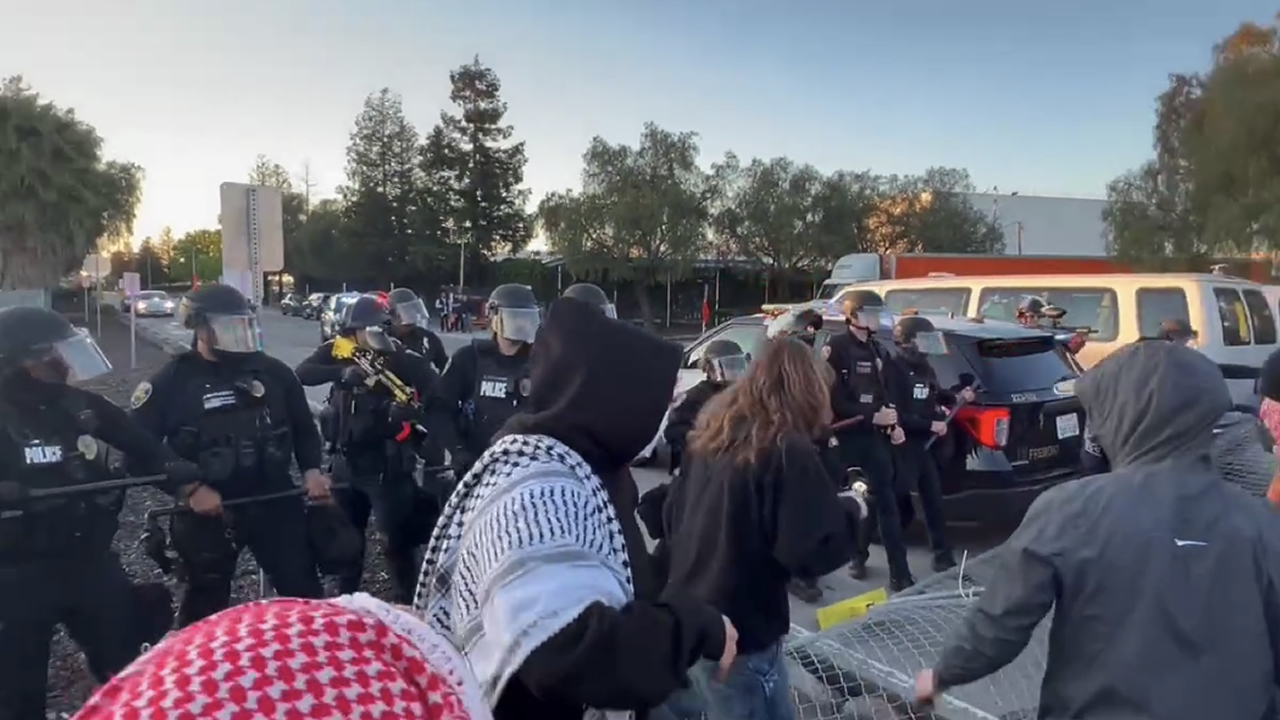Does wearing a mask when it's smoky outside work?

SAN FRANCISCO (KGO) -- N95 masks were considered the standard when it came to preventing the inhalation of wildfire smoke over the past few years. Now there are concerns they may not be as effective.
ABC7 News reporter Jobina Fortson sat down with Bay Area Regional Air Quality Management District last month. According to them, if you can smell smoke, you are being impacted by it. Yet they found N95s have limited health benefits and, in some cases, could even be harmful as they lead wearers to believe they're fully protected.
N95 masks filter out 95 percent of particulate matter in the air, including smoke. But that's only if you wear the mask correctly. Any gaps in the seal around the person's mouth compromise the mask's ability to protect the wearer. Improper sizing or even someone with a beard could result in limited air filtration. "There's an over hour-long process that employees normally need to go through to determine if this is the right mask for them," said Lisa Fasano, Communications Officer for the Bay Area Air Quality Management District. "They need to have no facial hair, they need to have the right facial structure, they're not suitable for children."
Removing the mask can also allow nasty particles to get inside, which you can then breathe in once the mask is put back on. "People take them on and off and think they're protecting their breathing," says Fasano. "Particulate matter is something that can trigger an asthma attack, or can trigger a COPD event, but it's not something that can kill you immediately... Particulate matter is going to be an irritant that that's going to impact perhaps a respiratory event, and be a problem over time, and these aren't going to be a good protection against that."
The Bay Area Air Quality Management District expressed concern that masks create a false sense of security. Users who believe the masks completely protect them, may feel free to spend prolonged time outdoors or overexert themselves. Strenuous activity can cause a person to breathe through their mouth, allowing in more particulates.
RELATED: Smoke from Kincade Fire could pose health hazards across San Francisco Bay Area
Still, Dr. John Balmes, a specialist in pulmonary critical care at U.C. San Francisco, says a mask can filter out 75 to 80 percent of harmful particulates, even when worn incorrectly.
Of course, all masks lose effectiveness if worn improperly. Disposable masks and filters for non-disposable masks should be changed on a regular basis. Masks should not be saved or re-used.
Another potential adverse effect of respirator masks is that they can make it difficult to breathe. Those with compromised respiratory systems could find wearing a hot, muffling mask stressful, even when worn properly. "They're very, very uncomfortable," Fasano told ABC7 News. "If you're wearing them properly, they're tight against your face, your nose and mouth, and you almost get a kind of suffocating feeling because they're so tight. That's how they're on correctly."
RELATED: PG&E report and images provide possible clues to start of Sonoma County wildfire
If you can't avoid going outdoors, CAL FIRE recommends the N99 masks at a minimum. N99s filter out 99 percent of particulate matter and usually cover more of the face and offer an exhalation vent. According to the Washington State Department of Health, masks should have at least two straps to secure it to the face and fit over the nose and under the chin.
N100s and P100s are also better options than the N95 or N99. As the number implies, they filter out nearly 100 percent of particles. According to the Centers for Disease Control and Prevention, the only difference between an "N" and a "P" is that P100 masks also filter out oil-based aerosols, which doesn't matter as much when the concern is about smoke. The "N" stands for "not oil-resistant" and the "P" stands for "protected" from oil.
Unfortunately, there's a price to pay for the improved protection. The higher-rated masks sell for $13 to $30 on Amazon and up to $35 in stores.
Though there are plenty of masks available via Amazon Prime, availability in brick-and-mortar stores in the Bay Area is limited. A random spot-check of retailers (as of October 24, 2019) found N99s, and N100s and P100s, in the following stores:
SAN FRANCISCO
Lowes (491 Bayshore Blvd, San Francisco, CA 94124): N99 in store
Standard Plumbing Ace Hardware (152 Clement St, San Francisco, CA 94118): N99 in store
Financial District Hardware (140 Pine St, San Francisco, CA 94111): P100 in store for $34.99
Cole Hardware (70 4th St, San Francisco, CA 94103): N100 in store
Roberts Hardware (1629 Haight St, San Francisco, CA 94117): N100 in store
NORTH BAY
Home Depot (111 Shoreline Pkwy, San Rafael, CA 94901, (415) 458-8675): P100 in store
Home Depot (225 Soscol Ave, Napa, CA 94559, (707) 251-0162): P100 in store
Home Depot (1175 Admiral Callaghan Ln, Vallejo, CA 94591, (707) 552-9600): N99 cartridges available (no full masks), P100 in store
Home Depot (11939 San Pablo Ave, El Cerrito, CA 94530, (510) 235-0800): P100 in store
Home Depot (2121 Cadenasso Dr, Fairfield, CA 94533, (707) 426-9600): P100 in store
Home Depot (4825 Redwood Dr, Rohnert Park, CA 94928, (707) 585-9200): P100 in store
EAST BAY
Ace Hardware (Martinez, (925) 228-6135): N100 in store for $19.99
Ace Hardware (Berkeley, (510) 845-0410): N100 in store for $22.95 - extremely limited, 2 on hand
Ace Hardware (Oakland Markus, (510) 832-6532): N100 - in stock tomorrow
Ultimately, the best approach to avoiding smoke exposure is to stay indoors with the windows and doors closed to seal out the smoke, and avoid prolonged or heavy exertion. "Staying indoors, keeping your respiratory rate low, is really the best way to kind of reduce the strain that you're having on yourself when we have these unhealthy smoke events," says Fasano. Vulnerable populations, such as children, seniors and those with heart or lung problems, should be especially careful during bad air conditions.
Take a look at more stories by Michael Finney and 7 On Your Side.










